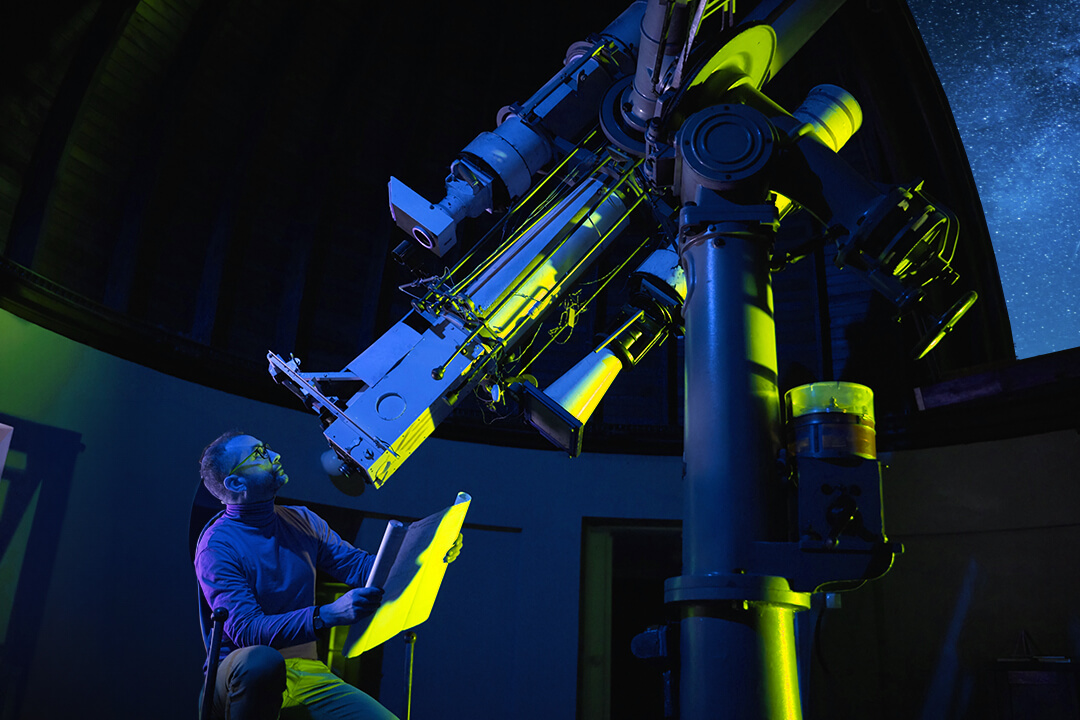Space exploration has entered a new era, with missions aimed at understanding the far reaches of the universe. Optical filters, often overshadowed by the glory of rockets and spacecraft, are the unsung heroes that enable scientists to collect accurate and meaningful data from the cosmos.
In this blog post, we will embark on a journey through space and explore how optical filters have become an integral part of space exploration. From their applications in identifying habitable exoplanets to capturing breathtaking images of celestial phenomena, optical filters are the quiet workhorses behind many scientific breakthroughs.
Key Takeaways:
- Optical filters are indispensable tools in space exploration, enabling scientists to gather precise data and make groundbreaking discoveries.
- They play a vital role in various aspects of space research, from studying exoplanetary atmospheres to capturing stunning images of distant galaxies.
- Optical filters enhance signal-to-noise ratios, improve data accuracy, and expand the horizons of our understanding of the universe.
- As technology advances, the demand for custom optical filters on space missions is expected to grow, leading to exciting discoveries on the final frontier.
- Whether it’s identifying habitable exoplanets or studying the birth of stars, optical filters are essential for pushing the boundaries of space exploration.
The Basics of Optical Filters
What are Optical Filters?
Optical filters are specialised devices designed to selectively transmit or block specific wavelengths of light. They are constructed using multiple layers of materials with varying refractive indices, meticulously engineered to interact with light in precise ways. These filters can be designed to allow only certain colours or wavelengths of light to pass through while blocking others.
How do Optical Filters Work?
The operation of optical filters is based on the principle of interference. By controlling the thickness and composition of the layers within the filter, scientists and engineers can tailor the filter’s spectral characteristics. This precision allows optical filters to isolate specific wavelengths of light, making them invaluable tools in a wide range of scientific applications.
Optical Filters in Space Telescopes
Enhancing Observations of Distant Galaxies
Space telescopes, like the Hubble Space Telescope, have revolutionised our understanding of the universe. Optical filters are an essential component of these telescopes, allowing astronomers to capture stunning images of distant galaxies. By selecting specific wavelengths, astronomers can reveal hidden details and structures within these galaxies, deepening our knowledge of the cosmos.
Optical Filters in Space Imaging
Capturing the Beauty of the Cosmos
Space imaging relies on optical filters to bring the beauty of the cosmos to our screens. These filters enhance the contrast and clarity of celestial images by filtering out unwanted light and reducing noise. Whether it’s capturing the intricate details of the lunar surface or showcasing the vibrant colours of nebulae, optical filters make space imagery truly captivating.
Custom Optical Filters for Space Missions
Meeting Unique Mission Requirements
Space missions often come with unique challenges and objectives. Custom optical filters are tailor-made for such missions, designed to meet specific spectral and environmental requirements. Whether it’s studying the composition of planetary surfaces, characterising the atmosphere of a distant world, or analysing the spectra of asteroids, custom optical filters provide the precision needed for success.
The Future of Optical Filters in Space Exploration
Advancements and Challenges
As technology continues to advance, optical filters are expected to play an even more significant role in space exploration. The development of advanced materials and coatings will enable filters to operate in extreme conditions, such as the harsh environments of outer space. Moreover, ongoing missions like the James Webb Space Telescope are set to push the boundaries of our understanding of the universe, and optical filters will be at the forefront of these groundbreaking discoveries. To stay updated on the latest advancements in optical filters, keep an eye out on news page.
Unveiling the Secrets of Our Solar System
While space telescopes and exoplanet research grab headlines, optical filters also play a vital role in exploring our own solar system. Robotic spacecraft and rovers sent to celestial bodies like Mars, Saturn’s moon Titan, and the icy surface of Europa heavily rely on optical filters.
These filters enable the instruments on board to capture critical data, including the composition of planetary surfaces, the presence of minerals or water ice, and the analysis of the Martian atmosphere. Optical filters help scientists and engineers make important decisions during missions, such as selecting landing sites or determining the best angles for capturing images.
For example, the Mars rovers Spirit, Opportunity, and Curiosity have utilised optical filters to analyse the Martian landscape and identify potential areas for further investigation. Similarly, the upcoming Europa Clipper mission will employ optical filters to study the surface of Jupiter’s moon Europa, searching for signs of subsurface oceans and their potential for life.
Conclusion
As we gaze at the stars and peer into the depths of the universe, let us not forget the unassuming heroes that enable these incredible journeys. Optical filters have transformed our understanding of space and continue to play a pivotal role in enhancing scientific discoveries. From unravelling the secrets of distant galaxies to identifying potentially habitable exoplanets, optical filters are essential tools in the toolkit of space exploration.
As technology advances and our ambitions in space grow, the demand for custom optical filters on space missions is poised to increase. These filters will continue to push the boundaries of what we can achieve, unlocking the mysteries of the final frontier. So, the next time you marvel at a breathtaking image from space or hear about a groundbreaking discovery, remember that optical filters are behind the scenes, making it all possible.
Partnering with Experts in Optical Filters
If you’re embarking on a project requiring specialised optical solutions, make sure to consult with experts in the field. Their knowledge and experience could be the difference between the success and failure of your project. Contact our team today, or call us on 01223 420329 or email our sales team at info@uqgoptics.com




